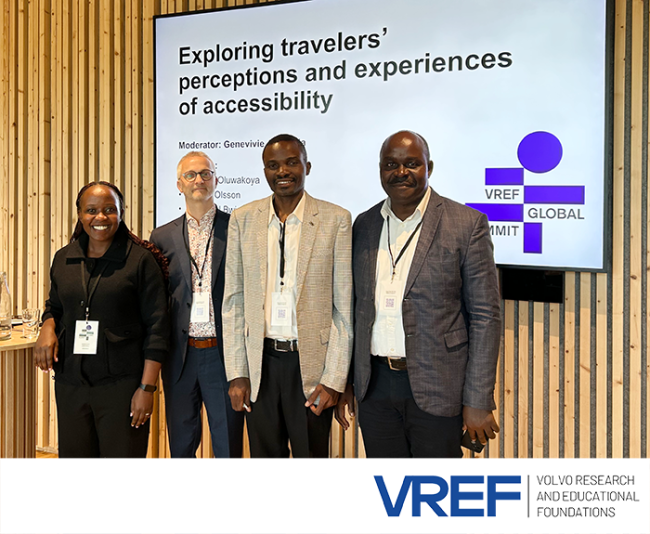Groundbreaking research from CTF presented at international conference
2025-06-05When the Volvo Research and Education Foundation (VREF) celebrated its 40th anniversary with a global conference on sustainable mobility, Lars E Olsson, professor of psychology at the Service Research Center (CTF), was invited as one of the speakers.
As a Nordic expert, Lars presented groundbreaking research on how hope can function as a driving force for behaviour change and increased well-being in people’s daily travel – a perspective that is attracting international interest.
Lars, how come you were invited to the Volvo Research and Education Foundation (VREF) Global Summit?
– VREF is an independent foundation that supports research primarily in under-resourced regions, such as the Global South (Africa), but also parts of South America and India. Over the years, they have awarded approximately SEK 600 million to development and research projects. I was invited to speak as a Nordic expert on mobility, accessibility and sustainability, with the task of presenting my current research on the psychological mechanisms that govern people’s daily travel and how this affects their overall well-being.
What does it mean to CTF that you are involved in this type of context?
– Usually, we share our findings through academic journals and conferences in the Western world. Presenting CTF’s research in a global forum with researchers from different backgrounds was truly valuable. It offered a chance not only to share 15 years of research but also to exchange knowledge and experiences. It was refreshing to place my work in a new context.
– It was especially relevant to present our latest research on hope as a motivator for behaviour change and well-being. Hope is a universal psychological mechanism, particularly important in times of crisis. Our new framework demonstrates how hope can be measured and linked to mobility and well-being. The research has already had an impact on Swedish transport planning, and we hope it can now inspire the development of transport systems globally.
Tell us about your presentation
– It was based on a recently published article called “A new novel framework of travel-hope”, which I co-authored with Siri Jakobsson Störe and Margareta Friman at CTF. It presents a new framework that illustrates how autonomy, accessibility, experiences and expectations are connected with behaviour change and well-being in the context of travel. The framework builds on 15 years of research on travel satisfaction, perceived accessibility and travel autonomy, and introduces hope as a central mechanism for understanding human behaviour and how this relates to well-being.


